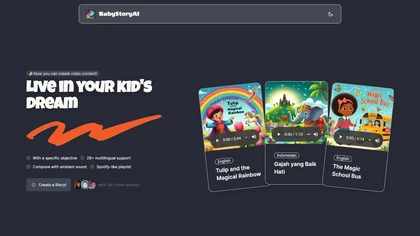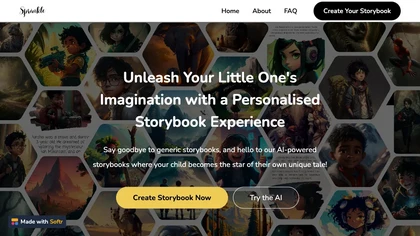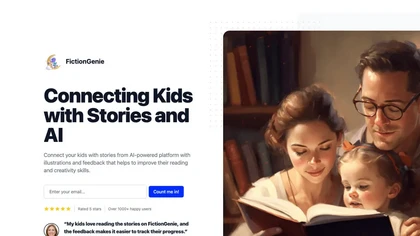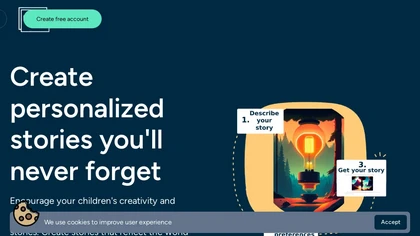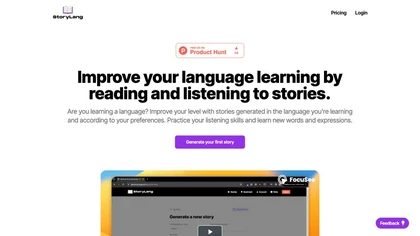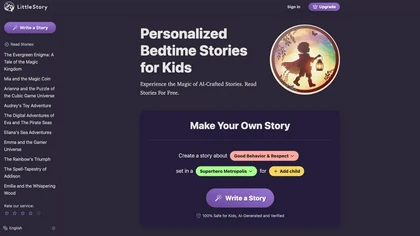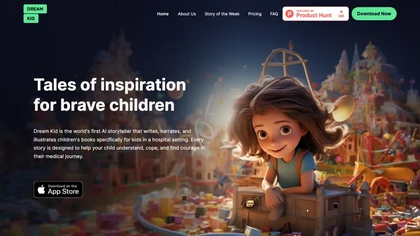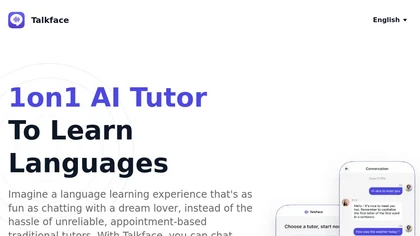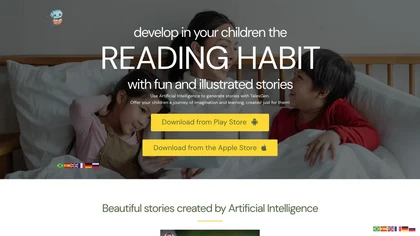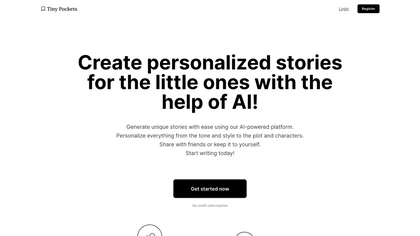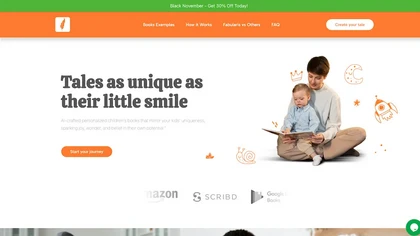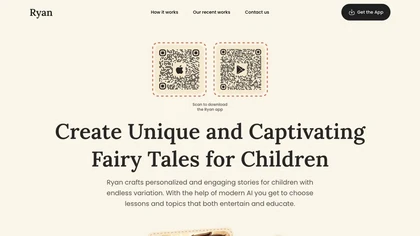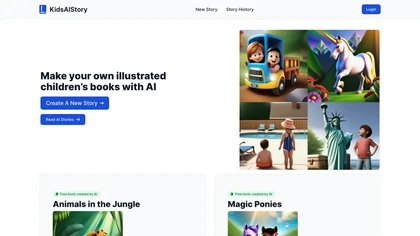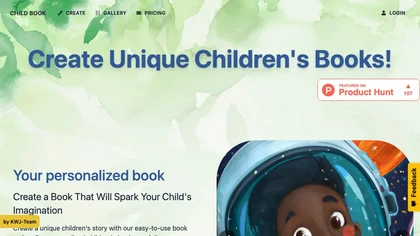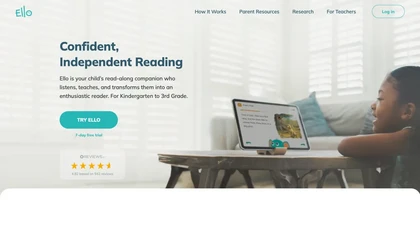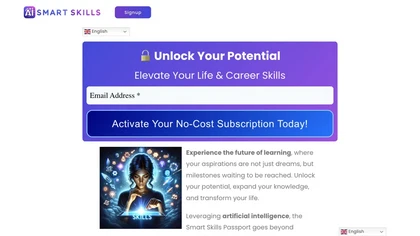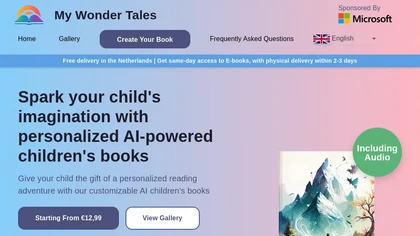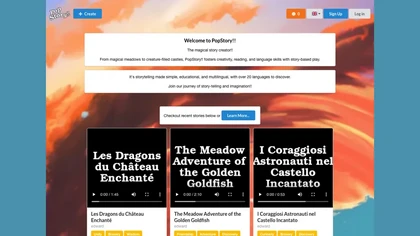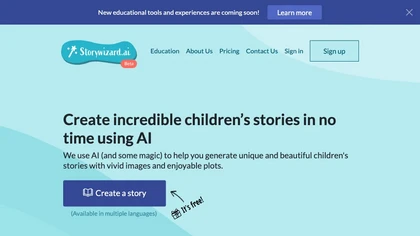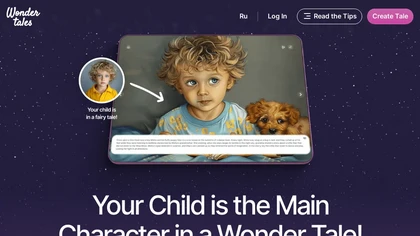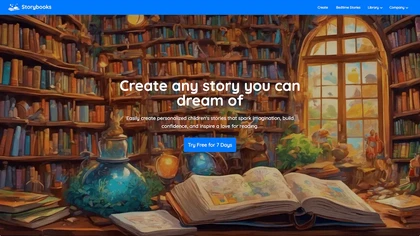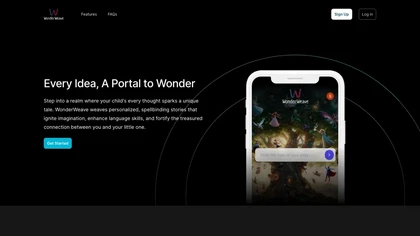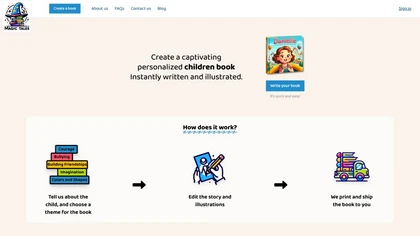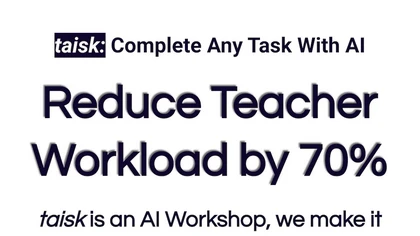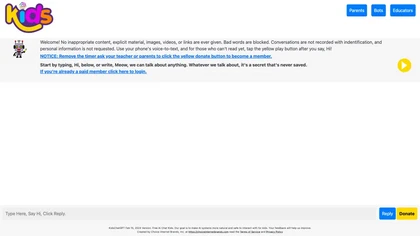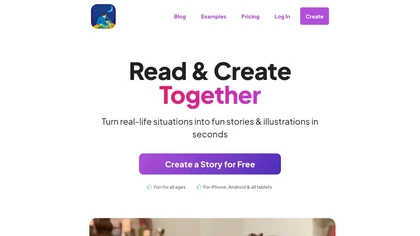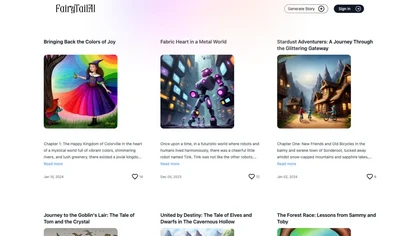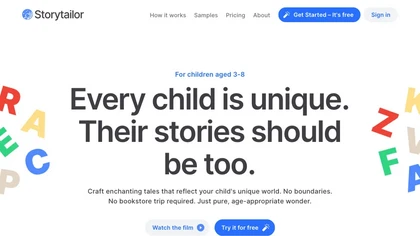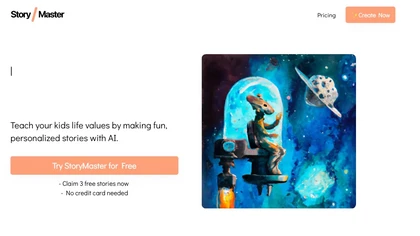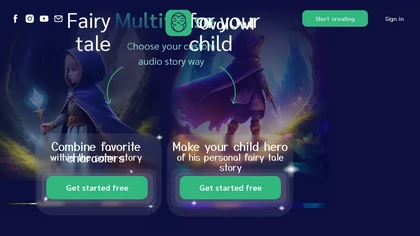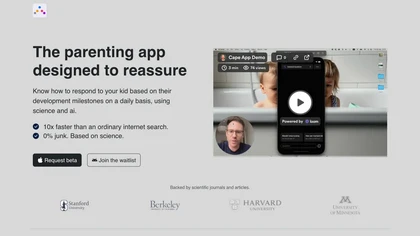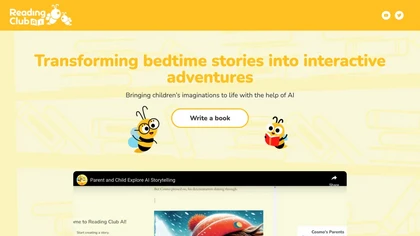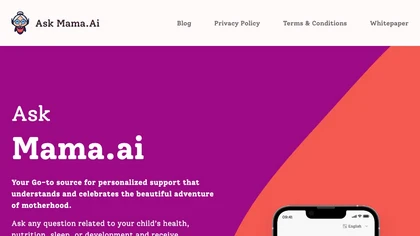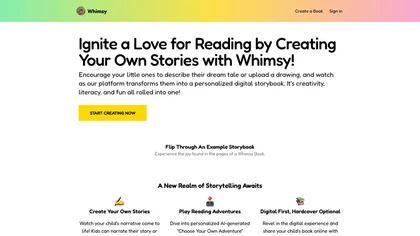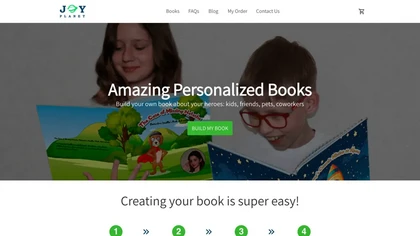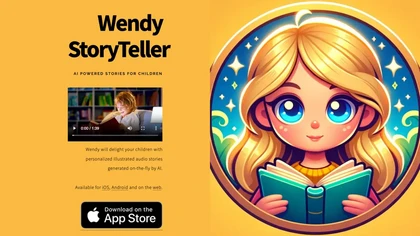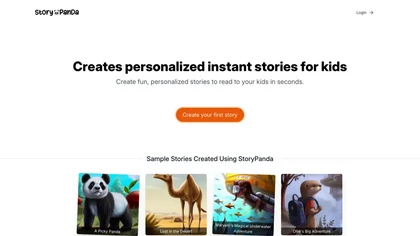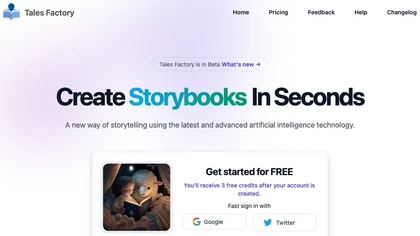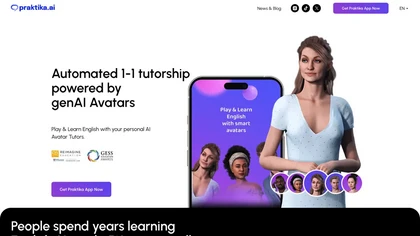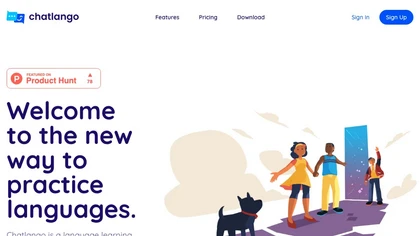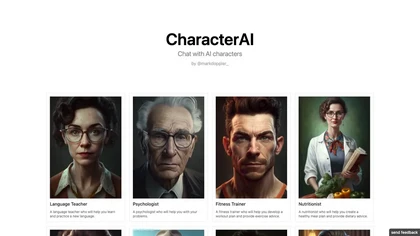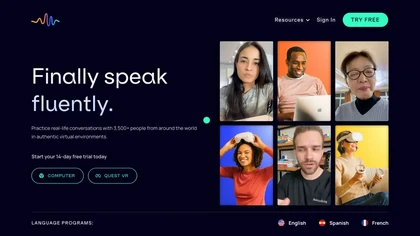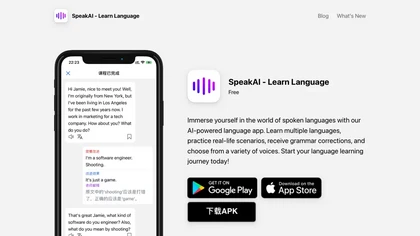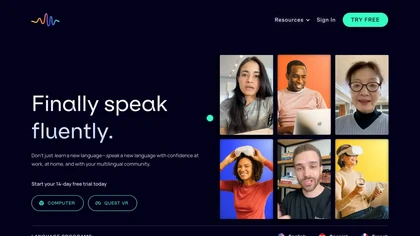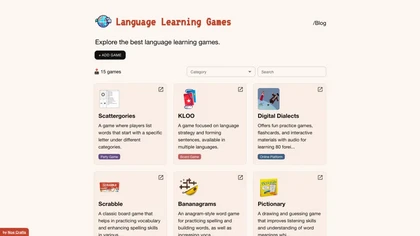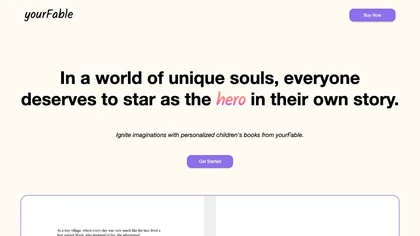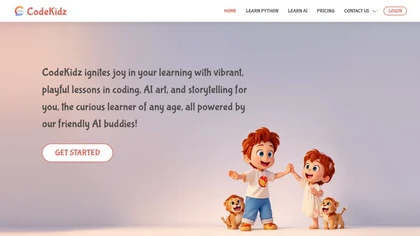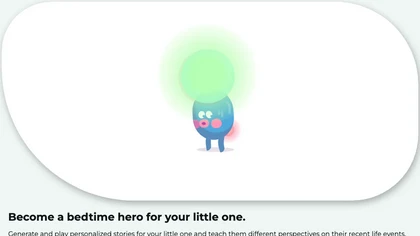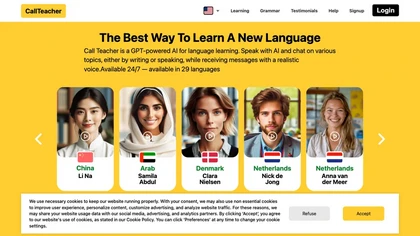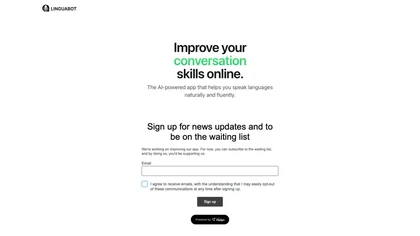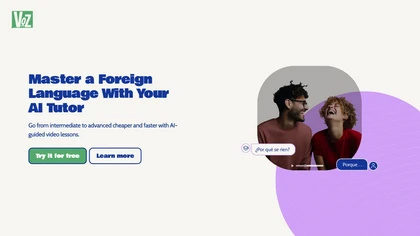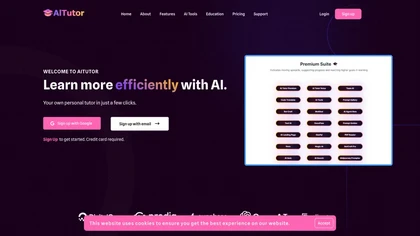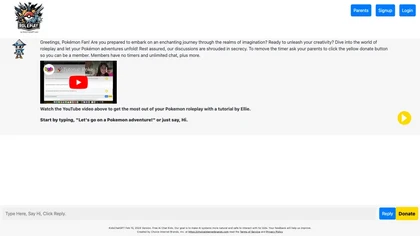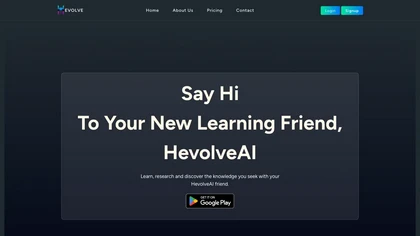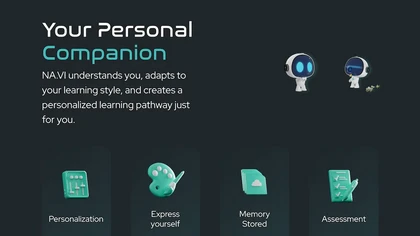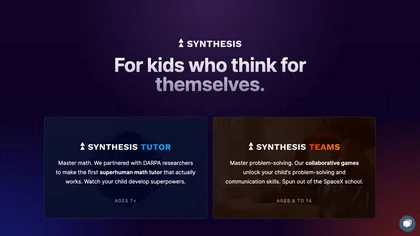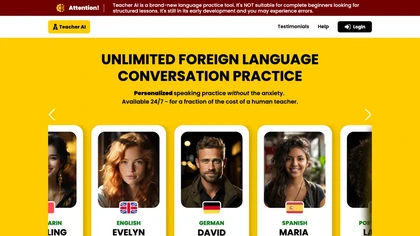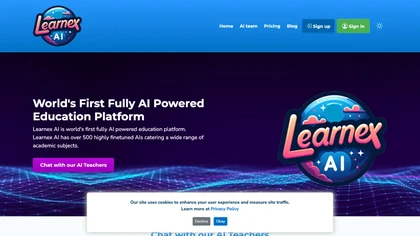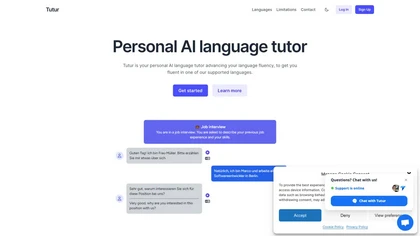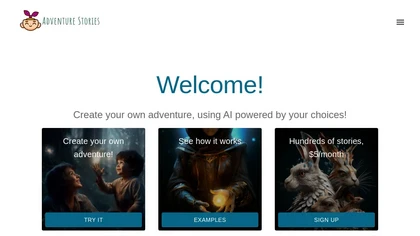AI use cases for Child development
Generative AI can be applied in various applications for child development. Here are some examples to explore below for inspiration with AI tools to get you started with using AI in child development.
🛠️ 70 AI tools for Child development
Explore a dynamic list of some of the most popular tools to get you started with various AI use cases and applications for Child development to streamline your workflows and productivity today.
BabyStoryAI features
- Personalized video content creation
- Support for over 28 languages
- Ambient sound and playlists
- Custom music and voices
- Upcoming interactive elements
Sprinkle features
- Story generation
- Personalization
- Unique tales
- Adventure
- Ai technology
FicitonGenie features
- Personalized feedback based on reading and creativity skills
- Multi-lingual book adventure feature for exploring different languages and cultures
- Tailored AI profiles based on child's age and language preferences
- Narration options in preferred language for promoting learning and vocabulary expansion
- AI-powered feedback system for tracking and enhancing creativity and storytelling passion
Tinytales features
- Customized story creation
- Protagonist appearance customization
- Illustration style customization
- Narration customization
- Dialogue customization
StoryLang features
- Customizable story generation
- Text and audio output
- Vocabulary expansion
- Personalized enhancements using OpenAI API
- Credit-based story generation
LittleStory.io features
- Personalized bedtime stories
- Safety-focused content review
- Co-creation with superhero themes
- Open discussions on sensitive topics
- Advanced customization options
TaleWeaver features
- Personalized storybook creation
- Safety features including profanity and mature themes filtering
- Customization options for parents to tailor stories based on child's preferences
- Age-appropriate vocabulary selection
- Illustrations to stimulate a child's imagination
🔥
Create your account, save tools & get personal recommendations
Receive a weekly digest of our handpicked top tools.
Unsubscribe anytime
Dream Kid features
- Writes children's books
- Narrates stories
- Illustrates books
- Offers 10 unique story settings
- Tailors stories to child's age and challenges
Talkface features
- 1-on-1 tutoring
- Personalized curriculum
- Language learning
- Fun and engaging
- Affordable solutions
- Eliminates need for unreliable tutors
- Available on android and ios devices
TalesGen features
- Generates personalized stories for children in multiple languages
- Offers a wide range of genres, themes, and complexity levels to choose from
- Creates age-appropriate content to spark children's imagination and love for reading
- Features AI-generated illustrations for visually captivating stories
- Ensures all content is safe, wholesome, and educational for kids
Tiny Pockets features
- Personalized story generation
- Customization of tones, styles, plots, and characters
- Multi-language support
- Collaborative story creation
- Export stories in PDF format
Fabularis features
- Create personalized stories
- Emphasize specific values
- Edit text and illustrations
- Generate preview of generated story
- Purchase unique stories
Ryan AI features
- Personalized fairy tales creation
- Tailoring stories based on a child's age group and preferences
- Library of saved stories
- Ability to add custom elements like lessons and characters
- Option to choose a narrator for the stories
KidsAIStory features
- AI-powered tool
- Create illustrated children's books
- Option to create or read AI-generated stories
- Explore a variety of themes
- Simplifies the storytelling process
Childbook features
- Create customizable stories
- Generate original characters
- Add illustrations
- Customize plots
- Text-to-speech
helloello.com features
- Adaptive learn™ technology
- Personalized reading experience
- Proprietary AI engine
- Exclusive decodable e-books
- Reading coach app
SmartLifeSkills
4.8SmartLifeSkills features
- Interactive platform with AI chatbots
- Multilingual lessons with authentic accents
- Adjustable playback speed
- Advanced text-to-speech technology
- Custom quiz generator
My Wonder Tales features
- Character customization
- Story personalization
- Genre selection
- Audiobook customization
- Device compatibility
PopStory!! features
- Story creation using magical themes
- Platform for fostering creativity and language skills
- User-friendly interface for simple storytelling
- Support for multiple languages (20 different languages)
- Immerse users in imaginative storytelling journey
StoryWizard features
- Create educational stories
- Enhance teaching practices
- Improve student engagement
- Multiple languages supported
- Safe and high-quality content
Wondertales.io
4.8Wondertales.io features
- interactive character selection
- moral theme selection
- multi-language support
- audio fairy tales
- personalized stories
StoryBooks features
- Customize characters
- Tailor story to preferences
- Create personalized experience
- Support story generation in multiple languages
- Promote linguistic inclusivity
WonderWeave features
- Personalized story creation
- AI-generated visuals
- Optional narrations in a cloned voice
- 14-day trial for exploration
- Privacy-focused
TalesAI features
- Story creation
- Encourages reading
- Language development
- Empathy and understanding
- Reduces stress and anxiety
Magic Tales features
- Personalized children's book creation
- Selection of various themes
- Editing story illustrations
- Tailored for different age groups
- Curated list of themes and educational topics
Interactive Tutor features
- AI bot creation and customization
- Integration with popular platforms (Wonde, Teams, Google)
- Access to GPT-3.5, GPT-4.5 Turbo, Dall-E, and AI Bot Library
Kids ChatGPT features
- Safe online environment with content filtering
- Voice-to-text functionality
- Initiate discussions on various topics using the yellow play button
- Conversation recording for monitoring
- Strict policy against storing sensitive information
StoriesForKids.ai: Personalized Kid's Books using AI features
- Generate stories
- Create illustrations
- Promote reading and creativity
- Suitable for real-life situations
- Available on mobile devices
FairyTailAI features
- Personalized fairy tales generation
- Vibrant colors and mystical worlds
- Characters like Princess Iris and Tink the cuddly robot
- Themes of creativity, courage, and kindness
- Emphasis on imagination and empathy
Storytailor features
- AI-powered story generation
- Customizable stories based on reader's taste
- Personalized storytelling for every stage of a child's growth
- Bespoke artwork and engaging activities with each story
- Naturalized voiceover AI to read stories coming soon
DreamKid features
- Write children's books
- Narrate children's stories
- Illustrate children's books
- Craft personalized stories
- Tailor stories to child's age, challenges, and interests
StoryMaster features
- Genre discovery
- Multilingual reading
- Exclusive illustrations
- Enhancing reading and writing skills
- Strengthening parent-child bonding
OvalOwl features
- Create personalized fairy tale stories
- Combine favorite characters
- Craft unique storylines
- Choose audio or written versions
- Join ovalowl community
Makebelieve features
- Multilingual support (English, Spanish, French, German)
- Provides support and companionship
- Empathetic and playful communication styles
- Engages users in exploring new activities and experiences
- Offers personalized interaction tailored to user's preferences
The Cape features
- AI-powered assistance in understanding and responding to child's developmental milestones
- Provides answers 10 times faster than traditional internet searches
- Zero irrelevant results in search responses
- Backed by scientific journals and articles for accurate information
- Tailored responses based on child's details
Readingclub features
- Transform bedtime stories into interactive adventures
- write books
- Ability to illustrate, edit prompts, and change images
- Support for multiple languages.
AskMama features
- Ask questions
- Monitor growth
- Preserve memories
- Entertain child
- Expert medical advice
WhimsyWorks features
- AI-powered story creation for kids
- Transformation of children's descriptions and drawings into personalized digital storybooks
- Interactive AI-generated games for reading adventures
- Age-appropriate and personalized storytelling experiences
- Option for digital or physical hardcover versions of storybooks
JoyPlanet features
- Personalization options
- Diverse catalog of stories
- Customization of main character details
- Inclusion of dedication letter and funny rhymes
- Ability to create unique stories featuring child, friends, pets, or coworkers
Wendy StoryTeller features
- Personalized illustrated audio stories
- On-the-fly story generation
- Available on iOS, Android, and web
- Utilizes AI for audio generation support
- Provides unique storytelling experience
StoryPanda.ai features
- Allows kids to create personalized instant stories
- Provides simple prompts to kick-start the creative process
- Offers different reading levels for stories
- Allows customization of art styles
- Generates stories with the child's name and family members as characters
Tales Factory
3.4Tales Factory features
- Generate unique and coherent stories
- Provide custom illustrations
- Voiceovers
- Various genres
- Publish and share storybooks
Praktika.ai features
- Generative AI avatar tutors
- Personalized 1-1 tutorship
- Real-time session feedback
- 1000+ lessons
- Unlimited learning opportunities
Chatlingo features
- Interactive language learning
- Real conversations with virtual mentors
- Grammar exercises
- Language practice
- Ai mentor
Language Atlas features
- adaptive lessons
- flashcard usage
- speaking practice
- audio and video examples
- global community
CharacterAI features
- Chat AI characters
- Simulate interactions
- Wide range of virtual character personas
- Engaging conversational experiences
- Tailored interactions
Mi Cuento Digital features
- Customizable storytelling
- Personalized tale generation
- Education through stories
- Illustrated pages
- Family-friendly reading experience
Immerse features
- Virtual reality language classes
- Authentic virtual environments for conversation practice
- Small group lessons and daily events
- AI roleplays for language skill enhancement
- Progress tracking through a dashboard
SpeakAI.cc features
- AI-powered language learning app
- Personalized learning paths and interactive exercises
- Support for a wide range of languages
- Real-time feedback and personalized grammar suggestions
- Real-time dialogue feature for practicing with virtual partners and native speakers
EasyAI features
- Consent management
- Cookie utilization
- Auto-translation into 75 languages
- Text-to-speech capabilities
- Importing PowerPoint presentations
immerse.com features
- Unlimited live classes
- AI-powered conversation practice
- Interactive events to connect with a global community
- AI roleplays for building confidence
- Progress tracking and task management dashboard
Language Learning Games features
- Wide range of language learning games
- 15 different game categories
- Interactive audio materials
- Variety of fun language learning games
- Engaging mini-games
yourFable features
- Personalized children's books creation
- Importing loved one's likeness into the story
- Customizing character details
- Artwork customization
- Spark imagination in children
CodeKidz features
- Interactive learning experiences
- Instant feedback on code execution
- Voice-enabled AI guidance
- Gamified lessons
- AI coaching with personalized teacher personalities
Purrbook features
- Reading
- Speaking
- Language learning
- Interactive
- Captivating storytelling
Rory features
- Generate
- Personalized
- Bedtime
- Stories
Callteacher features
- Real-time interaction for practicing speaking, listening, reading, and writing skills
- Personalized courses tailored to individual progress and interests
- Engage in one-on-one conversations with AI teachers
- Multilingual support for 29 languages
- 24/7 service availability and progress tracking
Play2Learn features
- Transforms training and lifelong learning through gamification
- Provides dynamic and immersive scenarios for users
- Offers interactive learning experience tailored to individual goals
- Utilizes AI tools for customization of scenarios and tests
- Allows tracking of progress, identifying knowledge gaps, and enjoying diverse gaming scenarios
Linguabot features
- Language practice through interactive conversations
- Real-time pronunciation feedback
- Grammar practice support
- Vocabulary practice functionality
- Enhanced language proficiency focus
Voz features
- AI-guided video lessons
- Practice multiple languages
- Enhance speaking and listening skills
- Engage with AI tutors for discussions and feedback
- Benefit from review features with spaced-repetition flashcards
AI Tutor features
- Personalized education
- AI models for teaching
- Assistance with assignments
- Support for multiple languages
- Voice-activated features
Roleplay Pokemon A.I. features
- Pokemon roleplay chat
- Secure accounts creation for children
- Confidential discussions
- Unlimited chat time for members
- Continuous evolution based on user feedback
Hevolve AI features
- Personalized and immersive learning experiences through AI generative avatars
- Adapts to individual learning styles
- Provides interactive assessments
- Offers personalized content delivery
- Supports interactive book learning
NA.VI features
- Personalized learning pathways
- Adaptive to unique learning styles
- Interactive features
- Assessment tools exploration
- Data privacy prioritization
Synthesis features
- AI-powered math tutoring tool
- Enhances problem-solving skills in children aged 7 and above
- Collaborative games to foster communication and critical thinking abilities
- Cultivates students' strategic thinking and collaborative problem-solving capabilities
- Focuses on empowering young minds to tackle complex challenges
Teacher AI features
- Personalized speaking practice
- Unlimited conversation practice
- Tailored conversations on topics of interest
- Error corrections and grammar explanations
- Progress tracking
Learnex AI features
- AI-powered education platform
- 500 highly fine-tuned AI teachers
- Chat support for various academic subjects
- Assistance in subjects like mathematics, history, sociology
- Diverse range of topics covered
Tutur features
- Detailed insight into fluency progress
- Multiple practice scenarios
- User-friendly interface
- Speech analysis
- Progress tracking
Virtual Friends features
- 3D embodied AI assistant
- Design and interact with personalized AI characters
- Shape virtual friends' personalities and interactions
- Dynamic and immersive interactions
- Platform for exploring AI companionship
Adventure Stories features
- Create unique stories
- Craft choices that determine direction of narrative
- Unlimited access to hundreds of stories
- Fun and collaborative experience for parents and kids
- Save stories in library
